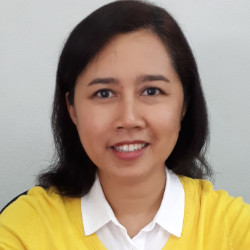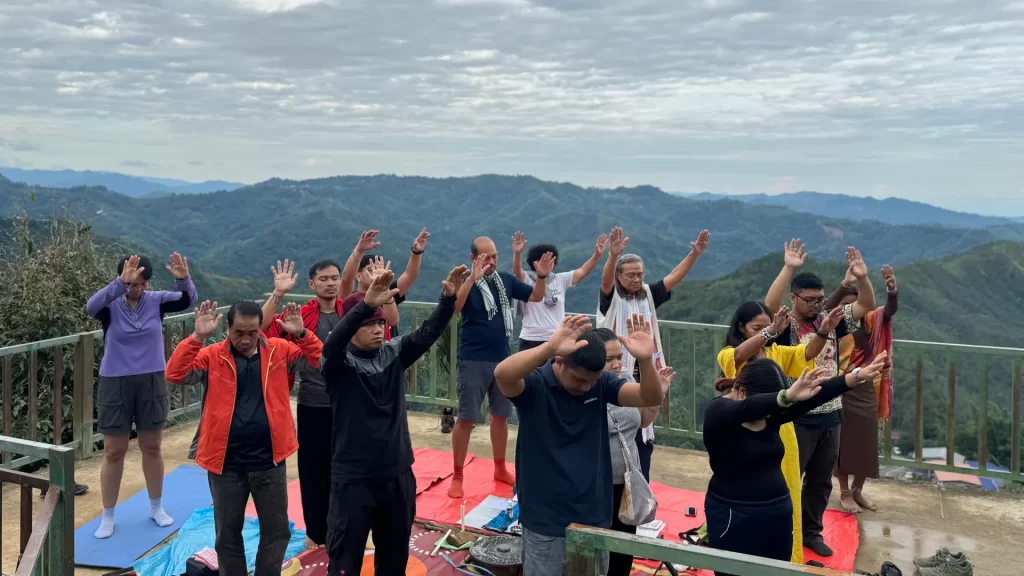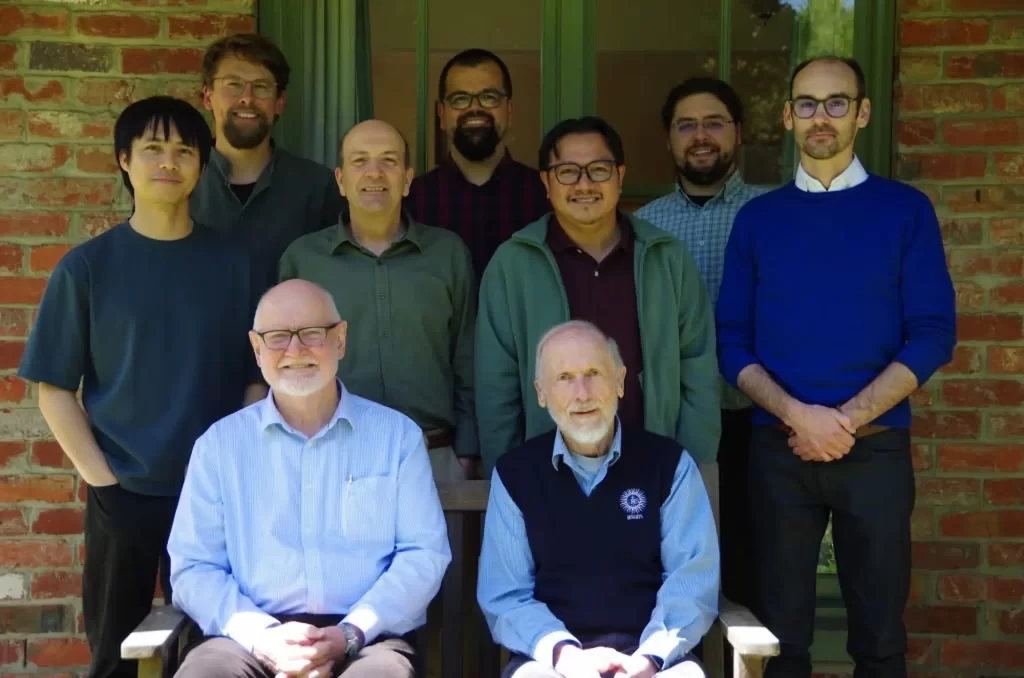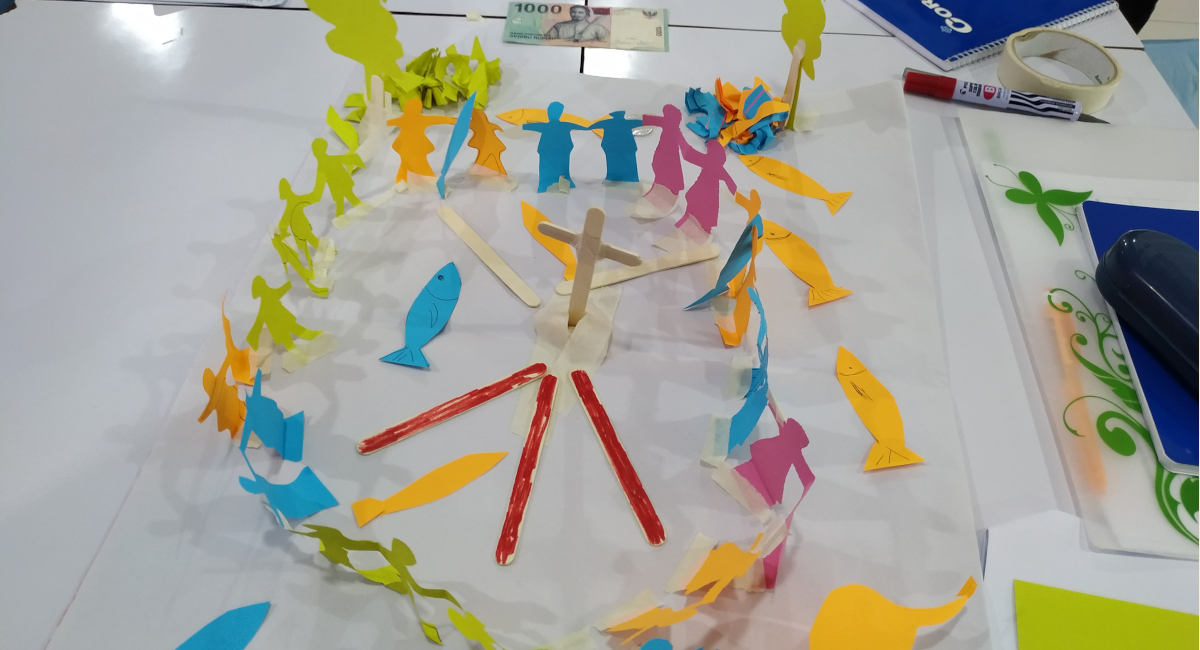
The second intake of the programme commenced its first module in Baguio, Philippines, in November 2018, continued in Yogyakarta, Indonesia, in May 2019, and in Chiang Rai, Thailand, in November 2019. However, due to the outbreak of Covid-19, the last module on Change and Continuous Learning was delayed and conducted using a synchronous and asynchronous learning approach from December 2020 to 29 March 2021, making this second cycle of the programme exceptionally unique.
JCAP President Fr Tony Moreno SJ stressed the importance of lay partners in Jesuit ministry and collaboration as part of Ignatian leadership. “All of us – Jesuits, lay men, and lay women – are called by God to His Mission, despite different ways of accomplishing it,” said Fr Moreno, who expressed his gratitude to the conference’s lay partners. “A leader of a Jesuit ministry, ingrained in the Ignatian tradition, should, therefore, discern and collaborate with others in pursuit of the Missio Dei. It is one thing to lead for others and quite another to lead by bridging with others.”
Through in-depth explorations of a leadership model anchored in the Ignatian tradition and Jesuit spirituality, the first module equipped us with relevant knowledge, skills, and tools to attain clarity of mission, to understand our ministry, and to realise our leadership role comprehensively. It guided us to achieve self-mastery in understanding our leadership competencies, qualities, and dispositions necessary to respond to the needs, challenges, and changes in our ministries.
Examining thoroughly Jesuit documents, particularly from General Congregation 36 and the Universal Apostolic Preferences (UAP), and exercising spiritual conversations throughout the designated activities, module two nurtured our interior freedom and cultivated our focal attitudes and the qualities indispensable for ministry growth along God’s mission and with thoughtful discernment in common. JCAP Planning Consultant Christina Kheng encouraged us to go back to the roots, inspiring us to constantly put God at the centre of our ministries, engage the whole person authentically, embrace collaboration and dialogue, and be able to read the signs of the times through prayer, reflection, examen, and discernment.
The next module enhanced operational competencies and introduced strategies developed based on cura personalis for effective human resource management and resource mobilisation. In this module, we also extensively exercised our critical thinking skills, and problem-solving and decision-making competencies as we examined and reflected on existing cases from various ministries.
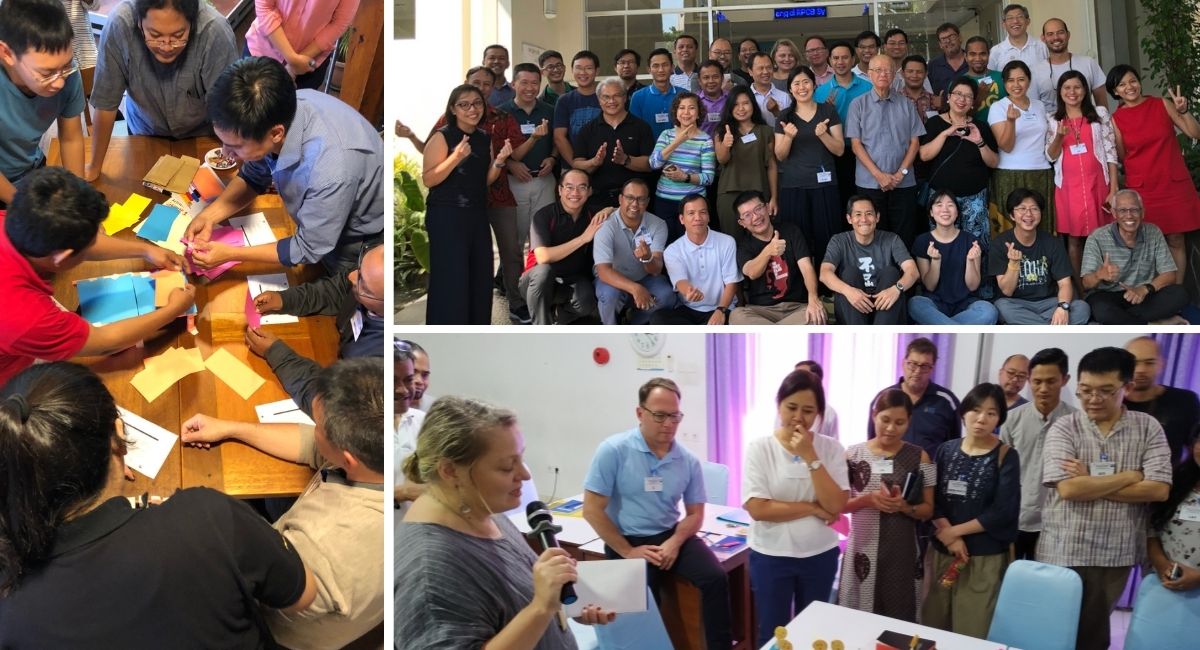
Clockwise from left: LDP Module 1 in Baguio, November 2018; Module 2 in Yogyakarta, May 2019; and Module 3 in Chiang Rai, November 2019
The coronavirus pandemic gave certain difficulties to the programme organiser, Ateneo de Manila University’s Center for Organizational Research and Development (CORD). In spite of this, the team was able to produce a well-designed and effective final module through a mix of online self-paced classes and live integration sessions in lieu of face-to-face sessions.
The online module provided us with an authentic learning experience in managing change and promoting continuous learning. The CORD team assuredly showed us how, in developing the online programme, they were able to adjust and cope with the changes, instill a culture of continuous learning, practise problem-solving and decision-making competencies, and sustain meaningful relationships and networks in a time of crisis.
“In managing change effectively, leaders need to be able to define the change objectives of their ministries, develop action plans, engage the people in the ministries, communicate effectively with them, and evaluate as well as institutionalise the change,” said Dr Edna “Bo Peep” Franco, the lead online facilitator for the course.
Given the context of uncertainties in a time of crisis or post-crisis, the module also emphasised the need for leaders in Jesuit ministries to continuously explore various Ignatian tools to deal with the crisis, promote self-care practices, and exercise cura personalis for the welfare of their companions. In addition, Jesuit and lay partners in leadership positions are called to explore different effective communication practices and to collaborate.
As the learning outcome of this programme, each participant created a change plan given the context of the new normal, synthesising their learning from all the modules, and then presenting it in a small group with other participants and before a panel of experts.
Integrated in all of the modules was the opportunity for spiritual growth as we took time to pause, reflect, and discern on insights, competences, and practices that can be implemented in our ministries. Included also were field trips to ministries in the host counties that enabled us to learn from their journeys in developing their missions, and learning circles that facilitated reflective dialogue and relationships among the participants.
As a lay woman who has been involved in the Jesuit ministry for years, I was grateful and blessed to have had the opportunity to take part in the Leadership Development Program. This has been such a spiritually fulfilling journey that brought me closer to God through the pauses, prayerful reflection, and discernment I was expected to do throughout the programme. It helped me to become fully aware of my imbalances, and yet be equipped with critical consciousness, skills, tools, and directions to cope with my imperfections and strive for my personal conversion. These newly acquired knowledge, competences, and Ignatian strategies are relevant and doable! They are also crucial for getting clarity of Missio Dei. They guide me in discerning my whole-ministry practices to pave the way for an effective and competent leader in the service of a higher purpose. As my journey continues in this mission, I continue to ask for God’s grace of humility, faithfulness, and perseverance in His mission.
Related stories:
Becoming leaders anchored in Ignatian Spirituality
Teamwork: An Ignatian way of leading
Learning to dance with God and His people

